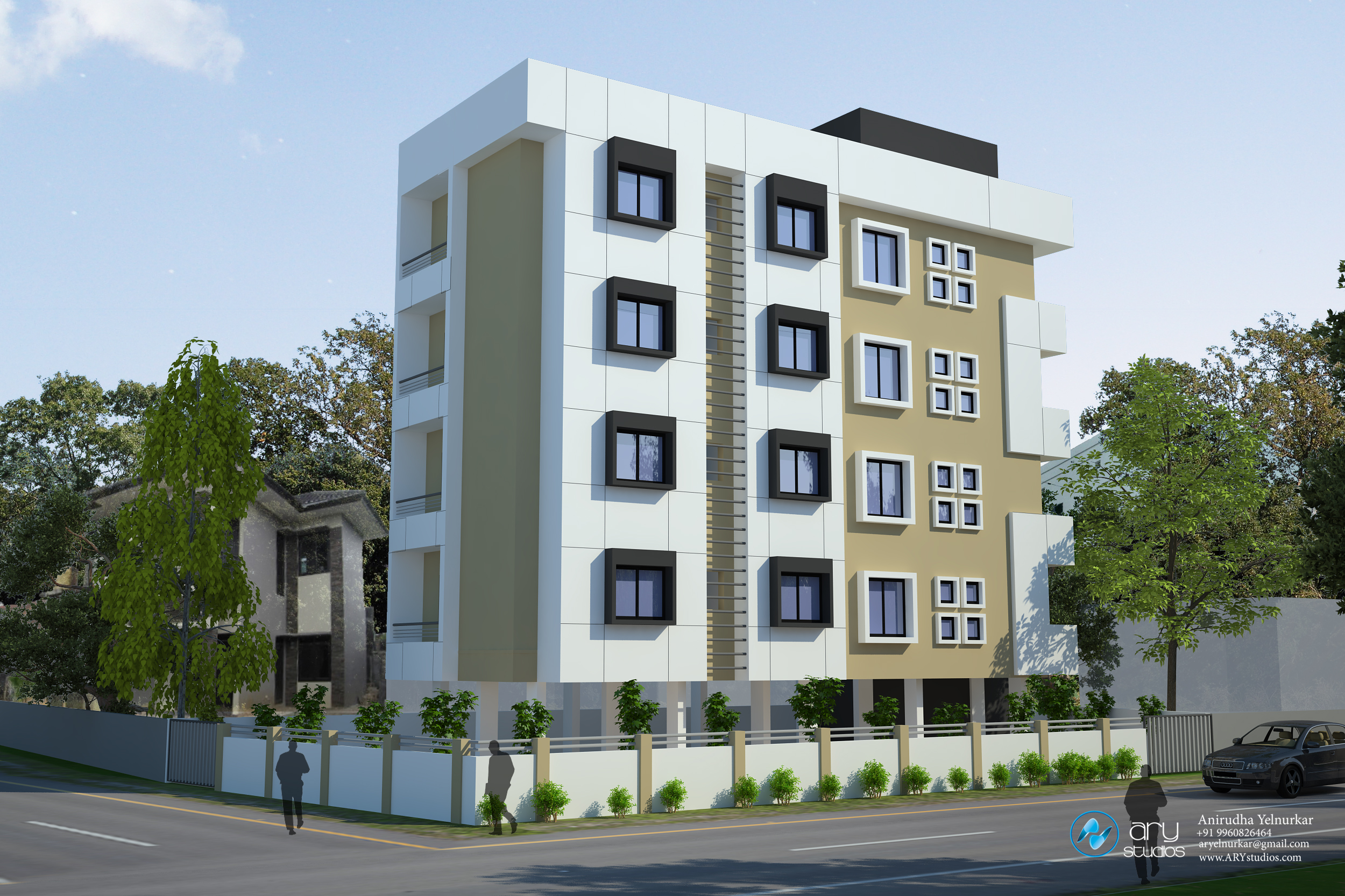Small Apartment Building Elevation

Introduction:
The elevation of a small apartment building plays a crucial role in determining its overall aesthetic appeal and functionality. It refers to the external appearance of the building, including its height, width, shape, and architectural features.

Design Considerations:
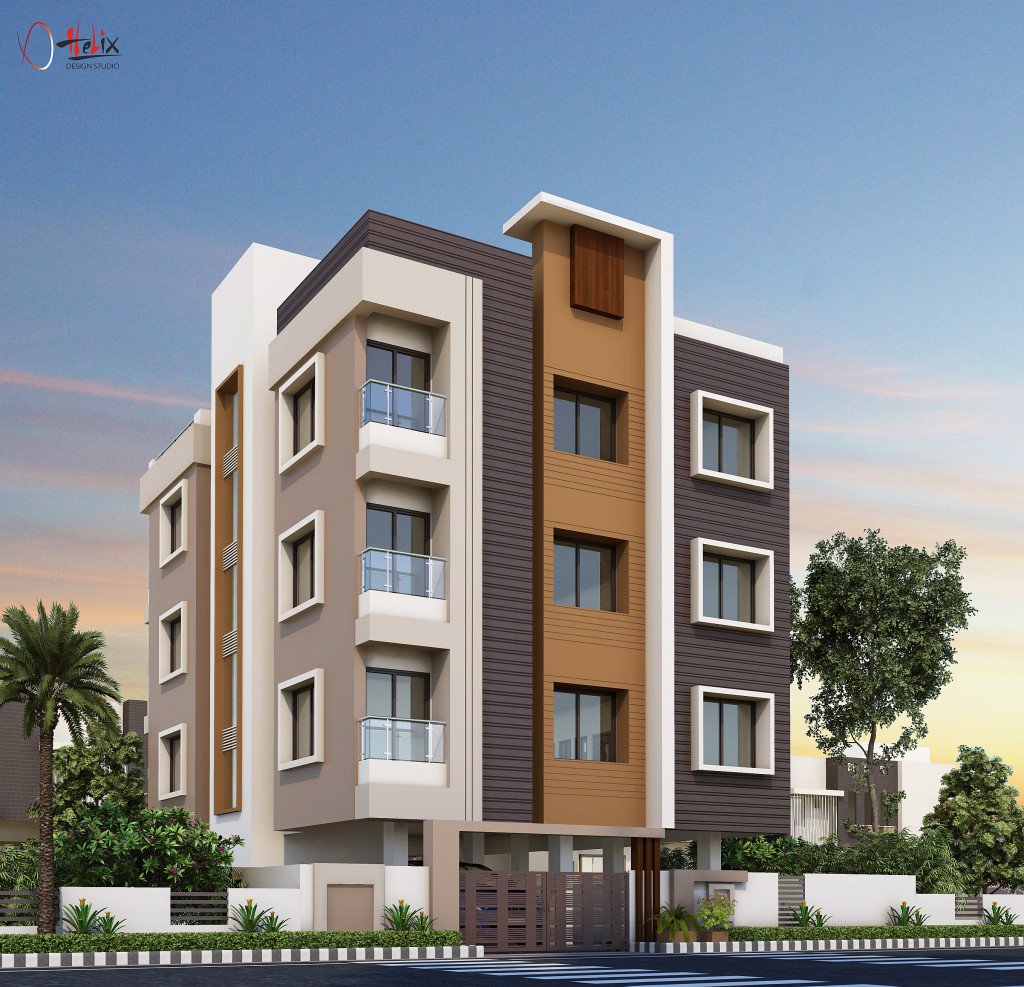
- Contextual Sensitivity: The elevation should complement the surrounding environment and architectural style. It should blend seamlessly with the neighborhood while maintaining its own unique identity.
- Height and Massing: The height and massing of the building should be appropriate for the site and zoning regulations. It should not overpower the surrounding structures or create a sense of congestion.
- Shape and Form: The shape and form of the building can create visual interest and enhance the overall design. Consider incorporating curves, angles, or setbacks to break up the monotony.
- Architectural Features: Architectural features such as balconies, terraces, and windows can add depth and character to the elevation. They can also provide functional benefits such as natural light and outdoor space.
- Materials and Finishes: The choice of materials and finishes can significantly impact the appearance of the building. Consider using materials that are durable, aesthetically pleasing, and complement the architectural style.







Functional Considerations:
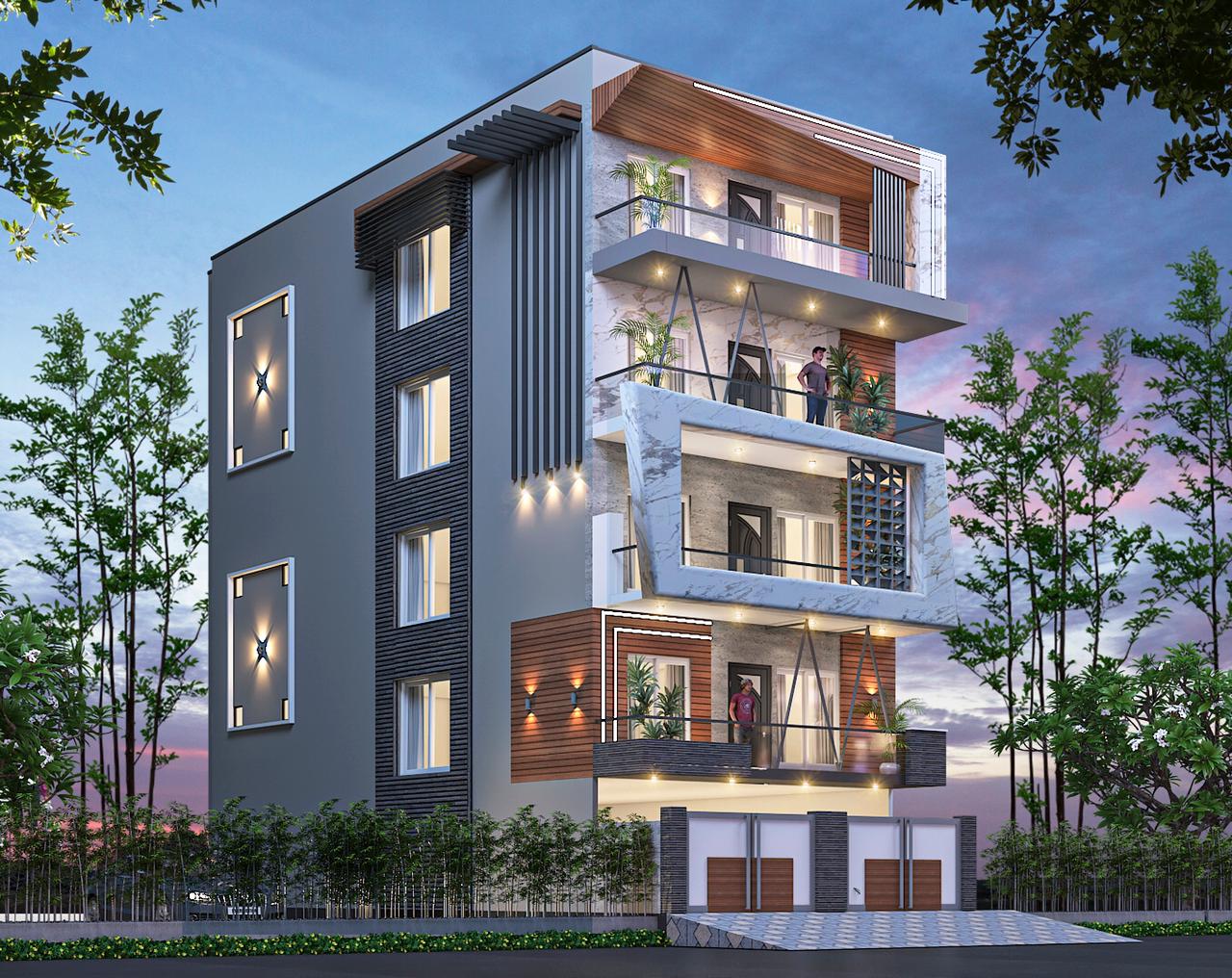
- Natural Light: The elevation should maximize natural light penetration into the apartments. This can be achieved through large windows, balconies, and skylights.
- Ventilation: Proper ventilation is essential for the comfort and health of the occupants. The elevation should incorporate features that allow for cross-ventilation and air circulation.
- Privacy: The elevation should provide privacy for the residents. Consider using balconies or terraces that are screened or enclosed, and windows that are placed strategically to minimize overlooking.
- Accessibility: The elevation should ensure accessibility for all residents, including those with disabilities. This may include ramps, elevators, and accessible entrances.

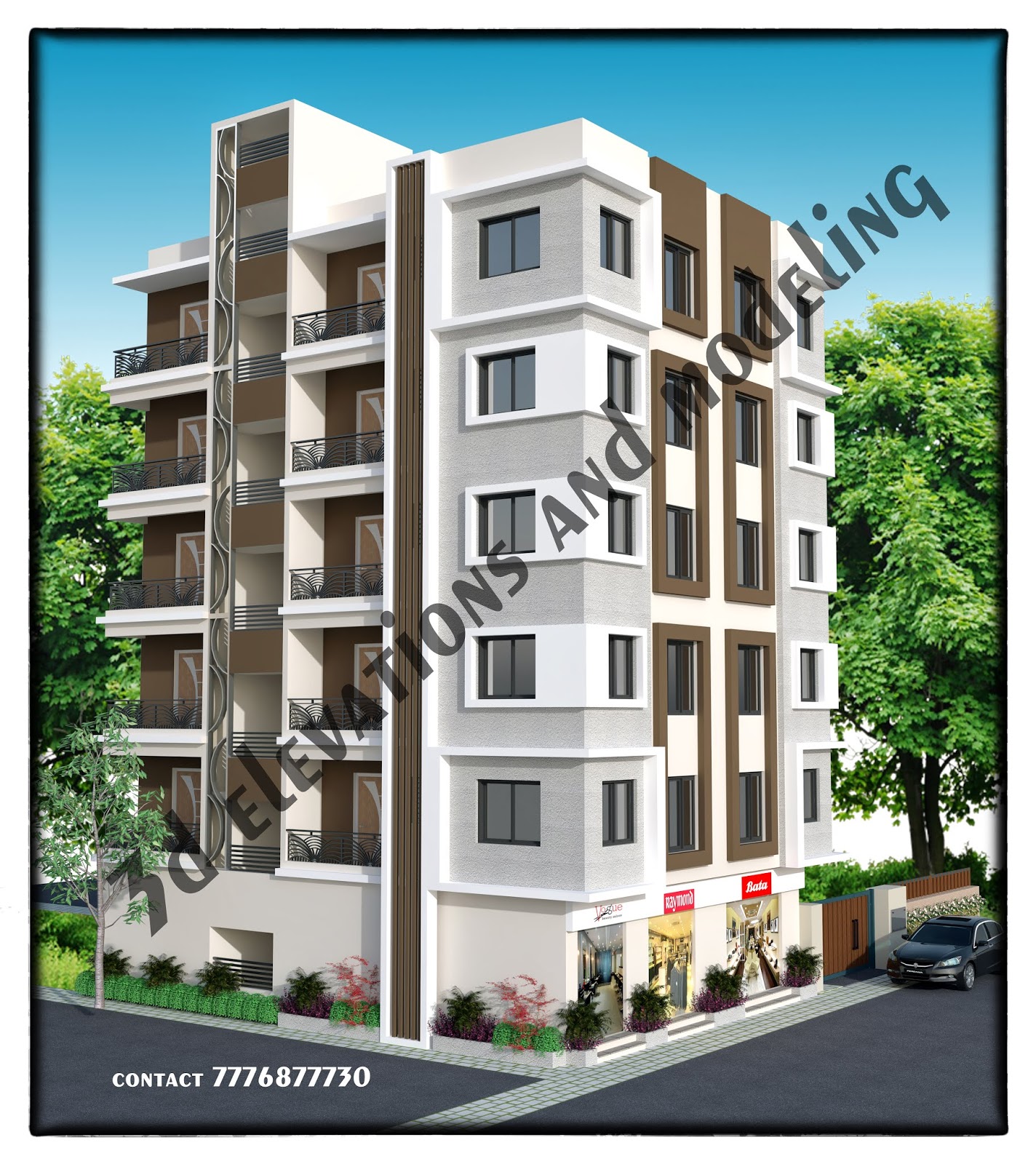




Examples of Small Apartment Building Elevations:

- Contemporary: Clean lines, geometric shapes, and large windows characterize contemporary elevations. They often use materials such as glass, steel, and concrete.
- Traditional: Traditional elevations feature symmetrical designs, pitched roofs, and decorative elements. They may incorporate brick, stone, or wood as primary materials.
- Modern Farmhouse: Modern farmhouse elevations combine elements of traditional and contemporary styles. They often feature white or neutral exteriors, gable roofs, and large porches.
- Art Deco: Art Deco elevations are characterized by geometric patterns, bold colors, and streamlined curves. They may incorporate decorative elements such as sunbursts and chevrons.



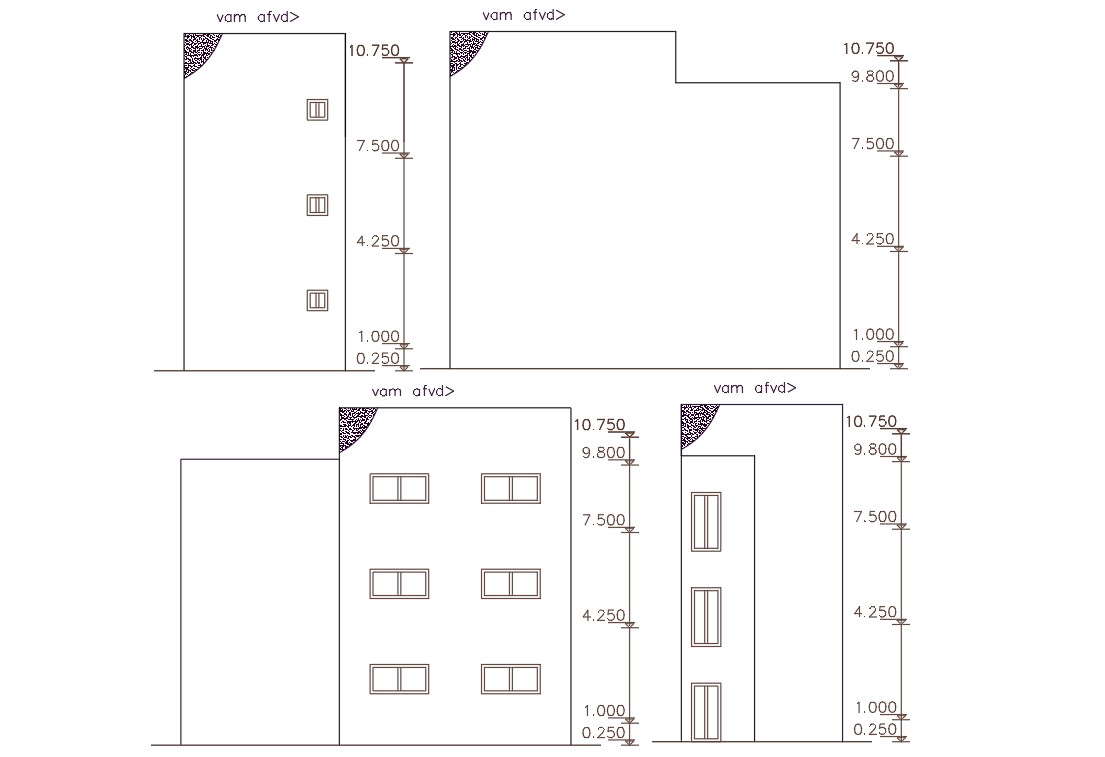


Conclusion:
The elevation of a small apartment building is an integral part of its design. By carefully considering both aesthetic and functional factors, architects can create buildings that are both visually appealing and comfortable to live in. The examples provided above showcase the diverse range of possibilities for small apartment building elevations.

